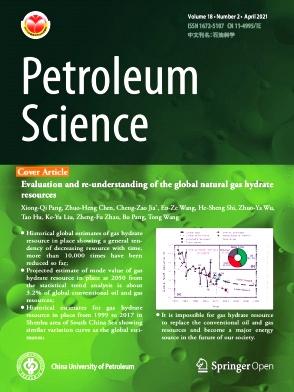Machine learning methods for predicting CO2 solubility in hydrocarbons
IF 6
1区 工程技术
Q2 ENERGY & FUELS
引用次数: 0
Abstract
The application of carbon dioxide (CO2) in enhanced oil recovery (EOR) has increased significantly, in which CO2 solubility in oil is a key parameter in predicting CO2 flooding performance. Hydrocarbons are the major constituents of oil, thus the focus of this work lies in investigating the solubility of CO2 in hydrocarbons. However, current experimental measurements are time-consuming, and equations of state can be computationally complex. To address these challenges, we developed an artificial intelligence-based model to predict the solubility of CO2 in hydrocarbons under varying conditions of temperature, pressure, molecular weight, and density. Using experimental data from previous studies, we trained and predicted the solubility using four machine learning models: support vector regression (SVR), extreme gradient boosting (XGBoost), random forest (RF), and multilayer perceptron (MLP). Among four models, the XGBoost model has the best predictive performance, with an R2 of 0.9838. Additionally, sensitivity analysis and evaluation of the relative impacts of each input parameter indicate that the prediction of CO2 solubility in hydrocarbons is most sensitive to pressure. Furthermore, our trained model was compared with existing models, demonstrating higher accuracy and applicability of our model. The developed machine learning-based model provides a more efficient and accurate approach for predicting CO2 solubility in hydrocarbons, which may contribute to the advancement of CO2-related applications in the petroleum industry.
预测二氧化碳在碳氢化合物中溶解度的机器学习方法
二氧化碳(CO2)在提高石油采收率(EOR)方面的应用大幅增加,其中二氧化碳在石油中的溶解度是预测二氧化碳淹没性能的一个关键参数。碳氢化合物是石油的主要成分,因此这项工作的重点在于研究二氧化碳在碳氢化合物中的溶解度。然而,目前的实验测量耗时较长,状态方程的计算也很复杂。为了应对这些挑战,我们开发了一个基于人工智能的模型,用于预测二氧化碳在不同温度、压力、分子量和密度条件下在碳氢化合物中的溶解度。利用以往研究的实验数据,我们使用四种机器学习模型对溶解度进行了训练和预测:支持向量回归(SVR)、极梯度提升(XGBoost)、随机森林(RF)和多层感知器(MLP)。在四种模型中,XGBoost 模型的预测性能最好,R2 为 0.9838。此外,对每个输入参数的相对影响进行的敏感性分析和评估表明,二氧化碳在碳氢化合物中的溶解度预测对压力最为敏感。此外,我们还将训练好的模型与现有模型进行了比较,结果表明我们的模型具有更高的准确性和适用性。所开发的基于机器学习的模型为预测二氧化碳在碳氢化合物中的溶解度提供了一种更高效、更准确的方法,这可能有助于推动石油工业中与二氧化碳相关的应用。
本文章由计算机程序翻译,如有差异,请以英文原文为准。
求助全文
约1分钟内获得全文
求助全文
来源期刊

Petroleum Science
地学-地球化学与地球物理
CiteScore
7.70
自引率
16.10%
发文量
311
审稿时长
63 days
期刊介绍:
Petroleum Science is the only English journal in China on petroleum science and technology that is intended for professionals engaged in petroleum science research and technical applications all over the world, as well as the managerial personnel of oil companies. It covers petroleum geology, petroleum geophysics, petroleum engineering, petrochemistry & chemical engineering, petroleum mechanics, and economic management. It aims to introduce the latest results in oil industry research in China, promote cooperation in petroleum science research between China and the rest of the world, and build a bridge for scientific communication between China and the world.
 求助内容:
求助内容: 应助结果提醒方式:
应助结果提醒方式:


